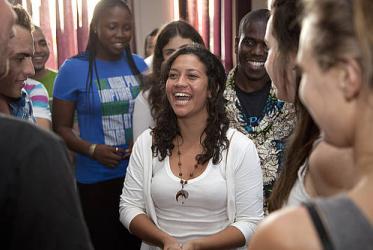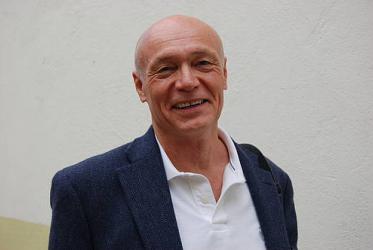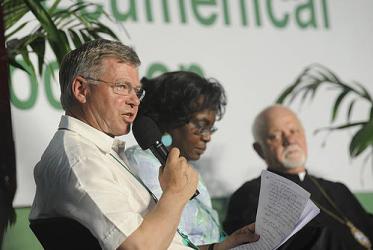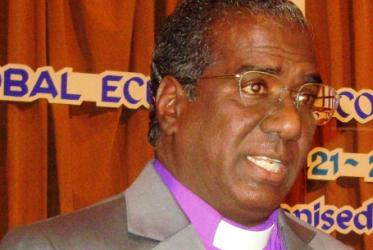Displaying 221 - 240 of 240
29 August 2012
Churches on the way to Rio+20
30 April 2012
Youth promise active involvement for environmental justice
14 December 2011
Sustainable water projects need ownership
28 October 2011
WCC Executive Committee in Ethiopia exposed to famine situation
13 September 2011
Christian youth to be trained for eco-justice
07 July 2011
What does “God's security” look like?
24 May 2011
WCC Central Committee focuses on peace and justice
25 February 2011
Christians are "called to care for creation"
11 August 2010
Churches launch major humanitarian alliance
24 March 2010
Kobia sees changing landscape
14 February 2008
January 2005
20 December 2004
October 2004
28 September 2004
















